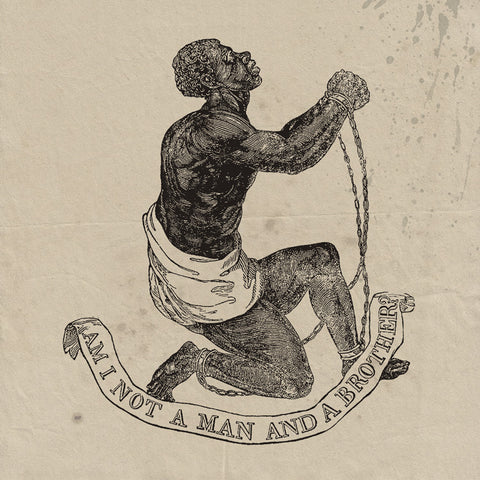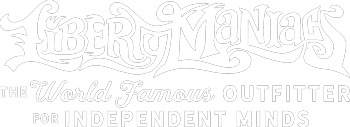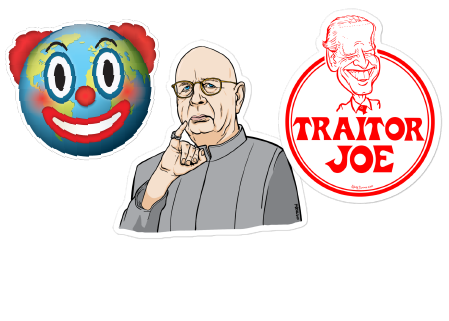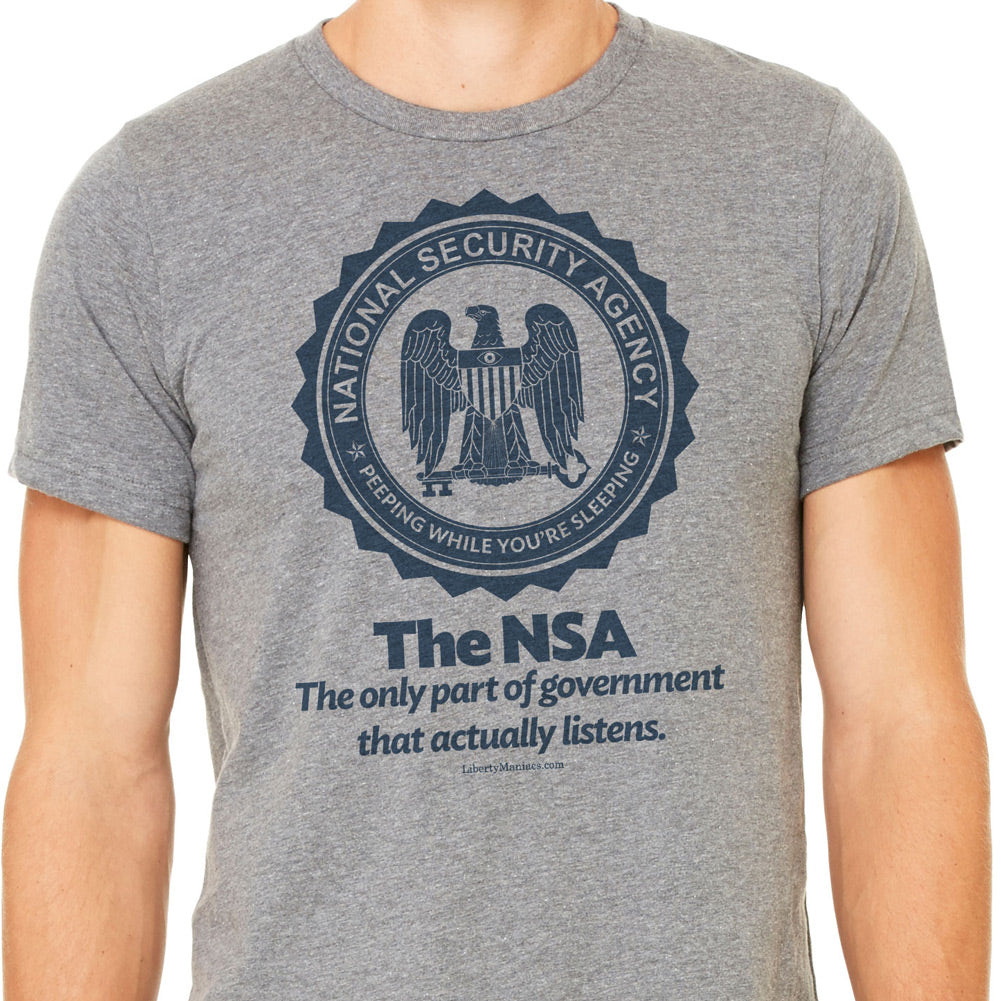Browse Categories
Add description, images, menus and links to your mega menu
A column with no settings can be used as a spacer
Link to your collections, sales and even external links
Add up to five columns
Add description, images, menus and links to your mega menu
A column with no settings can be used as a spacer
Link to your collections, sales and even external links
Add up to five columns
AM I Not A Man?
January 10, 2015 2 min read


The first and most identifiable image of the 18th century abolitionist movement was a kneeling African man with a banner stating “Am I Not a Man and a Brother?” below. (Left.)
It was an image commissioned by abolitionist Quakers, playing on religious symbolism to tug on the heartstrings of white folks. The kneeling black man looking feeble and in need of the graciousness of white people, underscoring the perception of black inferiority that’s continued in art and culture until even now.
I get the intent. It’s just bullshit. So I changed the slogan to something more appropriate for any shackled person of any age, broke the chains, and added a sidearm.
We live in a time where more black men are controlled by the criminal justice industrial complex than lived as slaves before the Civil War. From the drug war to a seemingly endless laundry list of laws aimed at social control, America has become a police state with the most incarcerated human beings in the world. The simple act of allegedly selling a few cigarettes on the streets of New York to fellow citizens got Eric Garner dead.
Even clear video evidence of the homicide viewed by everyone with a smart phone over the last year wasn’t enough to get justice.
People should be angry. People should stand up.
My argument has been that it wasn’t until the irreverent spread of hip hop in popular culture that the public perception of black inferiority was really challenged. That challenge took the form of a gritty, angry, beautiful, and often funny reflection of black life in our society. Through art, music, fashion, and language, our culture changed.

But not enough. My favorite quote by Mark Twain, which sits in front of me in the form or a 5 foot tall portrait in my studio, and gave me strength when I’ve fought my battles with authority states, “Irreverence is the champion of liberty and its only defense.”
To change things I think you have to ruffle feathers. You have to take what’s accepted, tear it apart, ridicule what is stupid, and recreate.
The peoples’ power is being challenged by the institutions in society that rely on violence to exist. Not just black people, but all people. The state and those that give it authority have exhibited a pattern of abuses on our liberty. The result being effective slavery.
The state is a fiction. Without our belief in it, it does not exist - it has no real authority without our consent. In that way we’re all in some way responsible for what has happened. We give the institutions the power that gives the state the means to push us around.
I’m sick of it, and I think it’s past time we say “I’m not your slave motherfucker” through art, humor, music, language, and action.
5 Responses
Tanya Pattison
April 20, 2021
I really like your interpretation of this image, and how you have changed the narrative associated with the original image. If possible, I would love to ask some you some questions about your own experiences, and what inspired you to create it? I am an Art History student at the University of Florida currently analyzing the original image and looking for some contemporary examples, so I would love to speak with you further on this.
Samuel
June 09, 2020
You turned a symbol of peace and equality into one of anger and violence. I’m sure the important figures of the abolitionist movement would be proud 😔
Babjan
December 21, 2015
I really think your work devreses better than these chick lit style covers, Meg. For me, the biggest offender is the cover of How I Live Now, which is one of my favourite books of all time. To me this book is universal in its appeal and definitely non gender-specific; I can’t imagine any boy thinking it might be a good read, with a cover like that. However, I like the cover of Just In Case, maybe better than the copy I own.I had a problem with my own book: The Killer’s Daughter. The original design was black and white and interesting (and importantly again, non gender-specific.) the final version was weird and pink. But I, as a first-time-published author, had no influence. Do you?I understand that publishers are in the business of maximising sales, but it’s infuriating when you think they’ve got it wrong and that the cover may alienate some readers and mislead others.
Adeeb Kasem
December 02, 2015
This is one of the funniest and most intelligent pictures I’ve ever seen. The whole political charge of it is condensed in the picture and I understood it instinctively in an unconscious burst of laughter. May I please include your image in a forthcoming philosophical essay which will be self-published and likely not garner any money? If I may, should I credit the artist as “Liberty Maniacs”, or does the artist prefer I use his real name (which I do not see on the page)?
Leave a comment
Also in Liberty Maniacs News

Enemies of Satire: How Liberty Maniacs Survived Censors, Lawsuits, and the Joke Police
May 01, 2025 3 min read
True tales of the most powerful agencies, politicians, and brands who tried to censor our jokes—and what happened when we fought back.

You’re Not a Nazi. They Just Want You to Shut Up.
March 28, 2025 7 min read
They call you a Nazi so you’ll sit down and shut up—but the man who actually escaped them would say you’re nothing of the sort.

10+ Ways USAID Burns Your Tax Dollars on Pure Insanity
February 19, 2025 4 min read
USAID: where your tax dollars fund transgender operas, Taliban poppy fields, and luxury hotels for migrants—because actual humanitarian aid is so last century.
Recent Articles
- Enemies of Satire: How Liberty Maniacs Survived Censors, Lawsuits, and the Joke Police
- You’re Not a Nazi. They Just Want You to Shut Up.
- 10+ Ways USAID Burns Your Tax Dollars on Pure Insanity
- Trump’s Day-One War on the Government-Censorship Hydra
- The Ultimate Guide to Men's Clothing Sizing
- The Ideological Capture Behind the Woke Left's Meltdown Over Trump's 2024 Victory
- The Yuri Bezmenov Playbook: A Guide to Ideological Subversion
- 198 METHODS OF NONVIOLENT POLITICAL ACTION
- Why the 2nd Amendment is Awesome
- I Have A Nightmare
Sections You Might Like
Subscribe
Sign up to get the latest on sales, new releases and more …








Benny Harvey
February 06, 2024
Bro I was in tears when I fist saw this picture, and this article only made me like it more. I’m a bit less skeptical about the original Quaker image though. While it doesn’t stand up in todays context, back then when the whites owned black people and were politically, culturally and socially superior (in pretty much every way except for intrinsic human value) tugging at their religious heartstrings in order to show that there is no intrisic superiority between people based on race was a really powerful statement and the reason why I believe the image holds up this day (keeping the context in mind). If someone made something like this now (and people do) It would piss me off and your modern day verson of it is one of the best things I’ve seen on the internet. Do you sell these shirts? I’d buy.